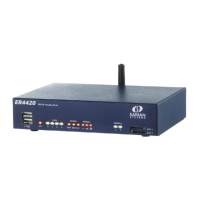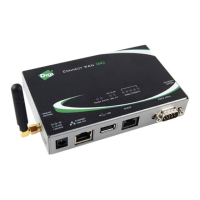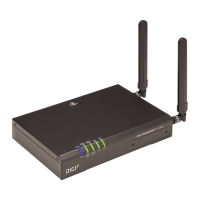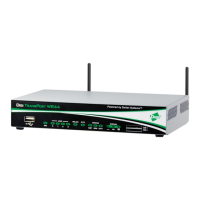Interfaces Show SureLink status and statistics
IX10 User Guide
183
2. Use the show surelink ipsec tunnel name command to show the Surelink status of a specific
tunnel, for example:
> show surelink ipsec tunnel test
IPsec Test Last Response Status
------ -------------------- ------------- ------------------
test 194.43.79.74 (Ping) 29 seconds Passed
test 194.43.79.75 (Ping) 5 seconds Passed
>
3. Type exit to exit the Admin CLI.
Depending on your device configuration, you may be presented with an Access selection
menu. Type quit to disconnect from the device.
Show SureLink status for all OpenVPN clients
To show the SureLink status all OpenVPN clients, use the show surelink openvpn client all command:
1. Select the device in Remote Manager and click Actions > Open Console, or log into the IX10
local command line as a user with full Admin access rights.
Depending on your device configuration, you may be presented with an Access selection
menu. Type admin to access the Admin CLI.
2. At the Admin CLIprompt, type :
> show surelink openvpn all
OpenVPN Client Test Last Response Status
-------------- -------------------- ------------- ------------------
test_client1 194.43.79.74 (Ping) 29 seconds Passed
test_client1 194.43.79.75 (Ping) 5 seconds Passed
test_client2 194.43.79.74 (Ping) 21 seconds Failed
test_client2 194.43.79.75 (Ping) 21 seconds Waiting for result
>
3. Type exit to exit the Admin CLI.
Depending on your device configuration, you may be presented with an Access selection
menu. Type quit to disconnect from the device.
Show SureLink status for a specific OpenVPN client
To show the SureLink status a specific OpenVPN client, use the show surelink openvpn client name
command:
1. Select the device in Remote Manager and click Actions > Open Console, or log into the IX10
local command line as a user with full Admin access rights.
Depending on your device configuration, you may be presented with an Access selection
menu. Type admin to access the Admin CLI.

